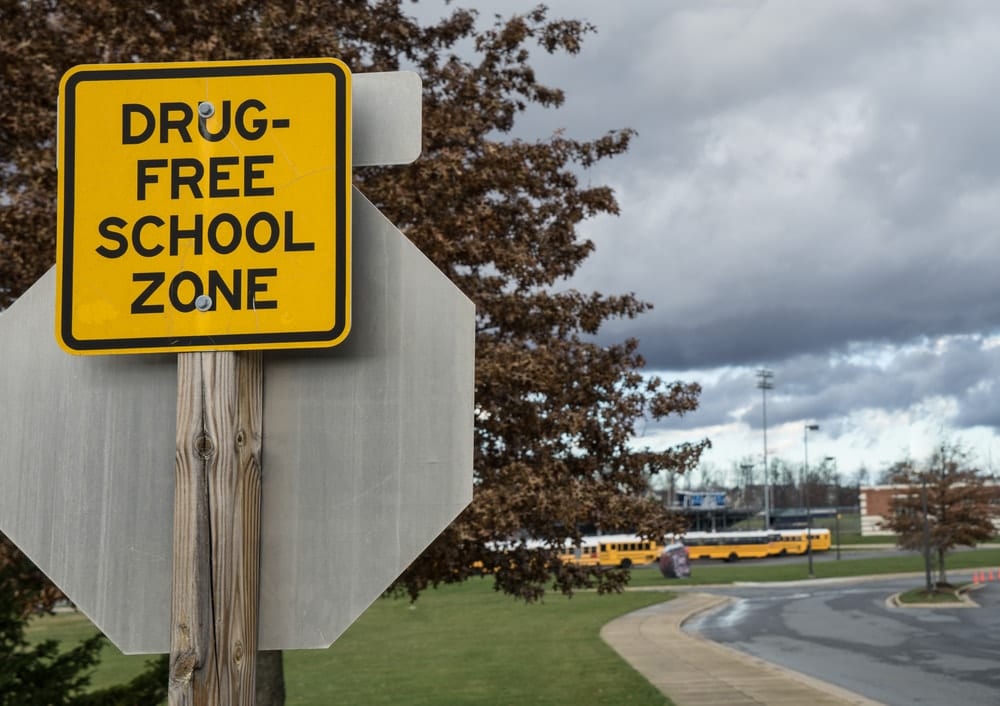Having an expulsion on a student’s record can have long-lasting negative impacts on that student’s life. If your child has been suspended and is facing expulsion, it is important to know about the rights your child is entitled to, and the process the schools must follow in order to impose an expulsion. Public education is not a privilege in Florida, it is a right, and therefore your student is entitled to due process of the law before that right can be taken away.
If your child is involved in an incident in school that causes the school to consider a student suspension or student expulsion, it is imperative that you contact an Orlando school expulsion lawyer immediately. The school disciplinary process moves extremely quickly and is guided by strict deadlines provided by law. The first step in determining if you need to contact a juvenile defense attorney is to determine what level of offense your child is accused of, and if that level of offense is one that can be punished by an expulsion from school.
Each county school board is responsible for creating a disciplinary response code that sets out the different levels of offenses, and the available punishments or remedies available to each level of offense. Those are written down in the Student Code of Conduct which is typically provided to each student on the first day of school and available on the school board’s website.
First Level Offenses – This typically includes minor acts of misconduct such as:
These offenses do not typically subject a student to expulsion. Such offenses are generally dealt with through disciplinary responses such as parental contact, counseling, verbal reprimands, withdrawal of privileges, detention, behavior contracts, or Saturday school. The first level of offenses will typically not subject a student to expulsion, and therefore not entitle them to due process rights.
As such, the first levels of offenses typically do not require the counsel of an attorney. It is important to remember that repeated minor offenses can lead to more severe consequences, and eventually even expulsion.
Second Level Offenses – These are more serious offenses, but still do not rise to the level of subjecting a student to the expulsion process. The Second level of offenses typically includes:
This second level of offenses is typically punished with special work assignments, detentions, suspension, Saturday school, referral to an intervention program, or assignment to an alternative classroom. While the second level of offenses is considered to be serious in nature by school administrators, they will generally not subject a student to the expulsion process either.
Third Level Offenses – These are seen as very serious offenses that require strict disciplinary measures, and could result in a recommendation for expulsion for repeat offenses. The third level of offenses typically include:
Fourth Level Offenses – Anything classified under the fourth level of offense is considered a major act of misconduct that may result in the immediate removal of a student from the school by means of expulsion. These major acts of misconduct include:
These offenses are so serious that they can require immediate suspension with a recommendation for expulsion. If your child is accused of one of these offenses, you need to contact an expulsion attorney immediately to discuss your options.
If your child is accused of an offense that could lead to expulsion, it will help you to understand the process. The school will first conduct a preliminary investigation into the accusation. Such an investigation is usually conducted by a dean or administrator. If the offense is one that could result in criminal prosecution, the school resource officer will likely assist in the investigation.
The investigation will include interviews with student and staff witnesses to get accounts of what transpired. The administrator conducting the interview will attempt to get written statements from all potential witnesses. If the investigation reveals that the student did not commit the alleged offense, there will likely be a dismissal of the accusation and disciplinary response. If the investigation reveals that the student did commit the offense, the student will be immediately suspended for ten days with a recommendation for an expulsion.

The procedure for an expulsion begins with the principal or a designated administrator informing the student of the reasons for consideration of expulsion. The student will be given an opportunity to present his or her side of the matter and must be afforded the opportunity to offer witnesses to the incident. If the student is accused of an offense that could result in criminal prosecution it is may be important to invoke the Fifth Amendment right to remain silent and refrain from making any statements until you have consulted with an attorney.
Once the principal or designated administrator has discussed the offenses with the student they must make a determination in writing as to whether or not the student is guilty of the misconduct, and if so, what the disciplinary response will be. The disciplinary response for a serious level four offense will almost always be an immediate ten-day suspension with a recommendation for expulsion. The principal or designated administrator will report the suspension and recommendation for expulsion in writing to the student’s parents and the area superintendent within twenty-four hours.
The expulsion process typically involves three separate hearings. The first of the expulsion hearings is a Discipline Team Meeting which must be held no later than the last day of the ten-day suspension. The Discipline Team Meeting will be presided over by an area administrator from the school board and attended by a principal or designated administrator, a counselor and/or school psychologist, teachers or academic advisors, the student, the parents, and the lawyer for the student. The school board will sometimes send a lawyer to represent their interests if the student hires a lawyer of their own.
The area administrator must first determine if there is documentation or evidence of a student disability requiring exceptional education services. A student disability may warrant additional due process safeguards, and possibly prohibit the expulsion of the student. However, certain offenses, such as drug or firearm offenses can still result in the expulsion of a student with a disability.
The area administrator must then determine if the offense committed by the student meets the criteria for an offense that could result in expulsion. If the student does meet the criteria for expulsion, the area administrator has the option to either forward the recommendation for expulsion to the superintendent or waive the expulsion and refer the student to an alternative education site in lieu of a full expulsion.
An alternative education site is typically a separate school operated by the county school board where students can spend one to two years of their study in place of a full expulsion from school. Once the student has completed his time at the alternative school he or she would be permitted to return to their original school.

If the area administrator forwards a recommendation for expulsion to the superintendent or waives the student to an alternative school, the student has a right to challenge that determination in a second expulsion hearing called an Administrative Hearing. An Administrative Hearing must be requested in writing within three days of the Discipline Team Meeting. Appropriate forms for requesting the Administrative Hearing are often provided at the Discipline Team Meeting.
The Administrative Hearing will be presided over by an Administrative Hearing Officer who may be a third party contractor retained by the school board to provide an independent review. The Administrative Hearing Officer is limited to reviewing the evidence already presented at the Discipline Team Meeting; however, other evidence may be introduced if it could not have been obtained by the parent or student using reasonable diligence prior to the Discipline Team Meeting.
The Administrative Hearing Officer may only reject the findings of the Discipline Team if there is no evidence in the record to support such findings. The Administrative Hearing Officer will either uphold the referral to an alternative education site or the recommendation for expulsion or recommend whatever action is deemed appropriate based on the facts and charges.
If the area administrator forwards the recommendation for expulsion to the area superintendent, the student will have to appear before the county school board for a final expulsion determination. Only the school board has the legal authority to expel a student. The school board will hear a presentation of the case from the area administrator, and then provide an opportunity for the student, parent, lawyer, and other interested parties to be heard. Each speaker is limited to three minutes.
The school board will then put the matter to a vote. If the school board votes in favor of expulsion then the student will be immediately expelled from all public schools in the county.
If your child is accused of an offense and you are not sure if it could result in a recommendation for expulsion, you should immediately call a local expulsion lawyer to seek advice. The expulsion process is subject to an extremely strict timeline so time is certainly of the essence.
The Orlando school expulsion attorneys at The Umansky Law Firm have over 100 years of combined experience that we can put to use for your child’s benefit. Oftentimes, a student is wrongfully recommended for expulsion due to his or her reputation, which makes the alleged actions appear much more believable. Having represented hundreds of Floridians with criminal charges, we can help avoid expulsion at all costs by providing vigorous legal defense and pursuing favorable alternatives. Contact us today for a free case evaluation or use our 24/7 live chat service to schedule your appointment.
The Umansky Law Firm Criminal Defense & Injury Attorneys
